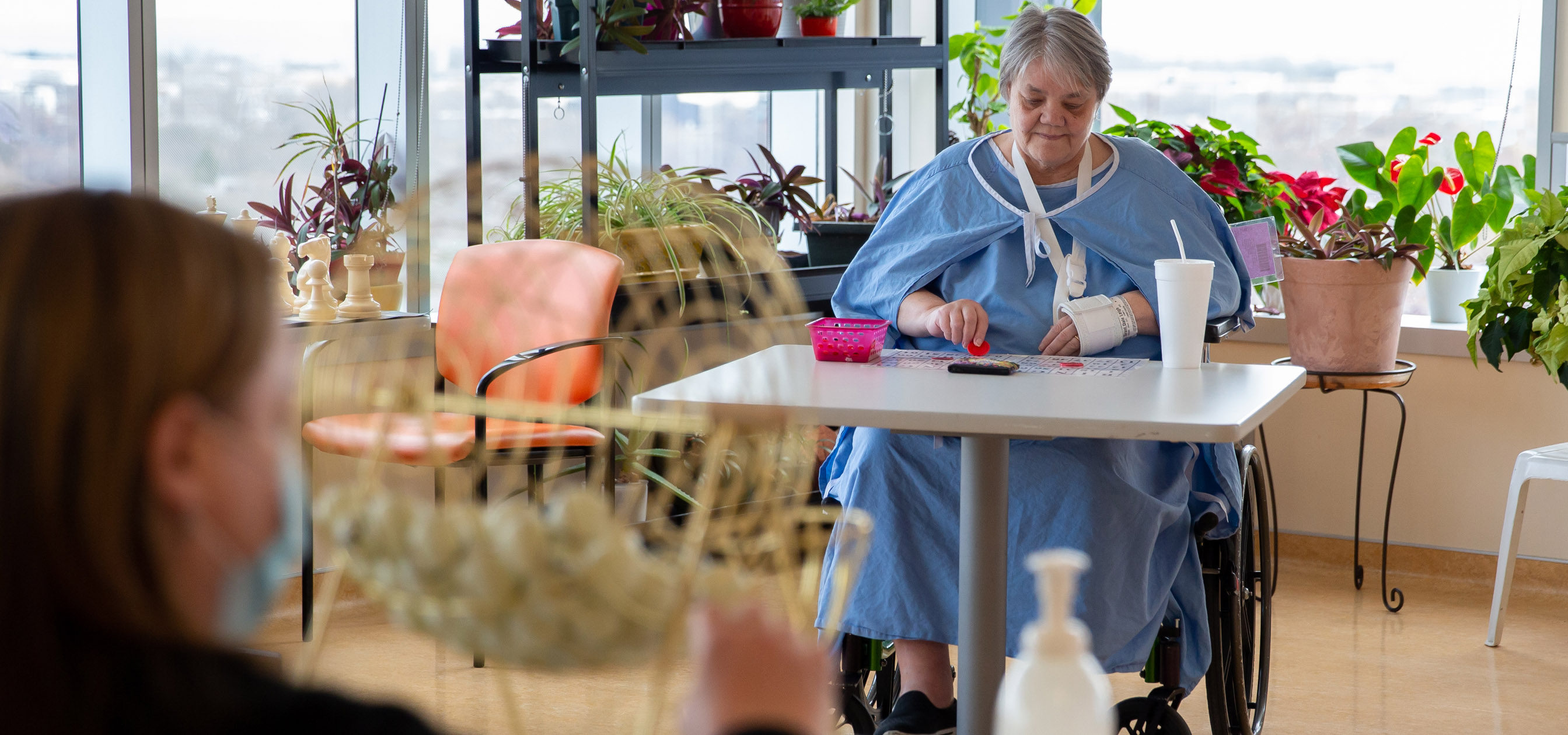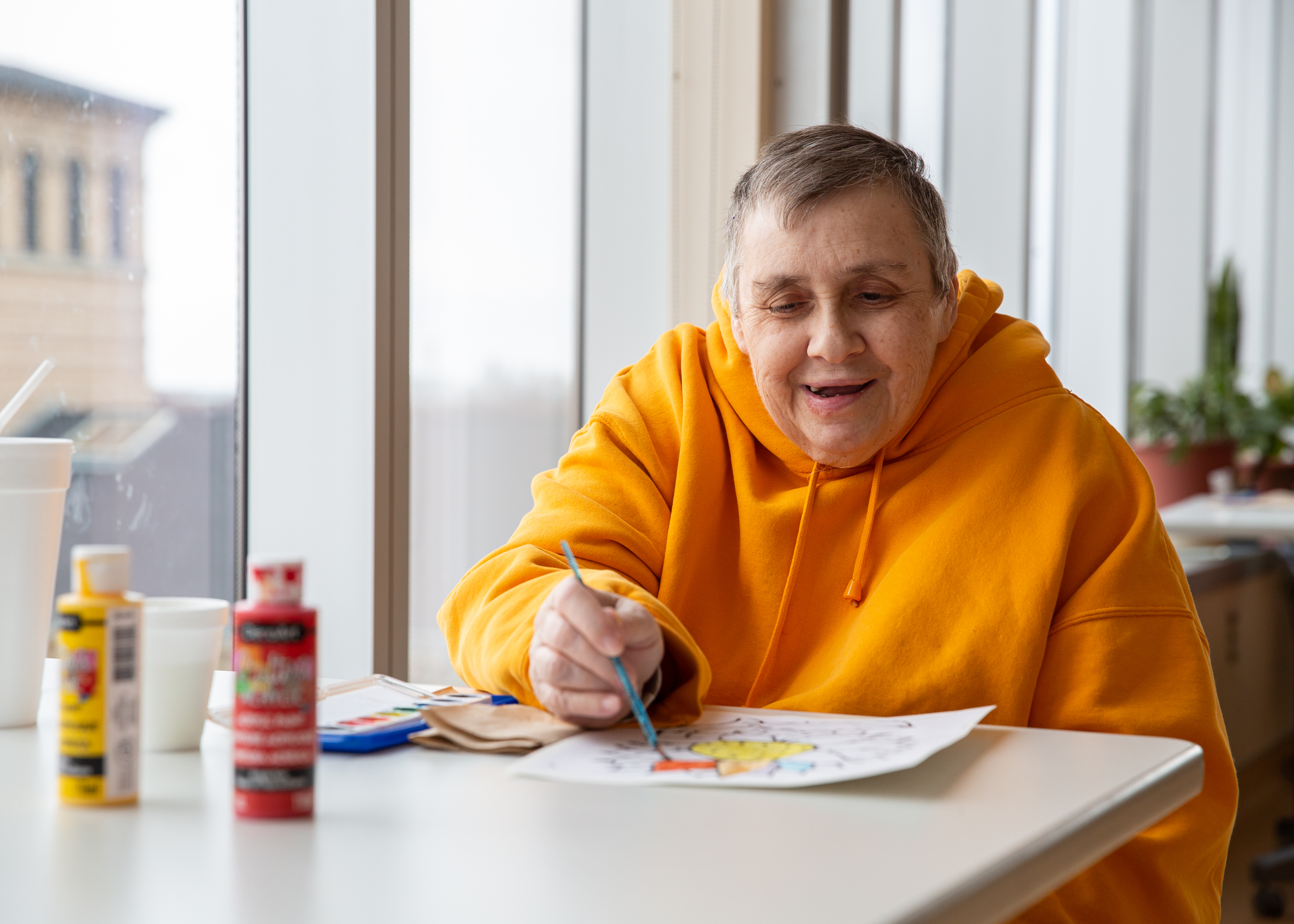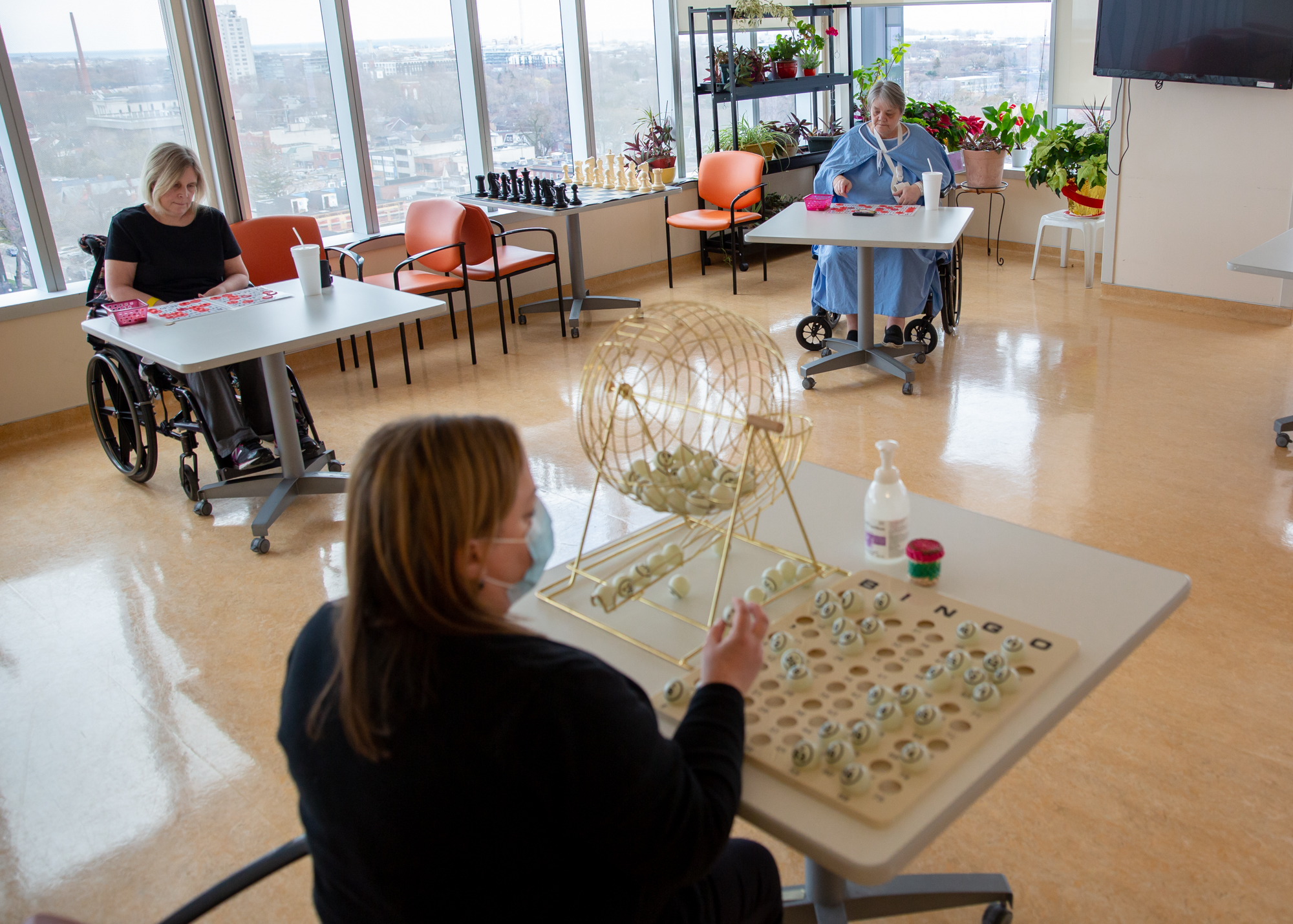
Patients at Bridgepoint Active Healthcare typically enjoy a monthly slate of Therapeutic Recreation activities such as coffee socials, gardening, art, film and documentary nights, bingo and more. But now, during the COVID-19 pandemic with no large group gatherings permitted, the team is finding new and creative ways to deliver programs and support patients’ health and well-being.

Bonnie, a patient at Bridgepoint, participates in an art program,
Instead of meeting in large groups, Therapeutic Recreation is taking their show on the road and visiting patient units in small groups to maintain physical distancing. Coffee socials have gone mobile with team members delivering hot beverages to patients and offering friendly visits.
The new approach has been getting rave reviews from patients. One patient, Bonnie participated in a small group art program where she took up painting again, an activity she had not tried since she was in school. “It’s a nice way to pass some time and break up the day,” she says.
A weekly bingo game has given a group of patients on one unit the opportunity to socialize and get to know one another. “It’s something that I look forward to now,” says Dale, one of the participants.
Other patients are enjoying solo recreation and leisure resources that can be used at their bedside such as portable DVD players, radios, crossword puzzles and adult colouring. Or, taking care of the plants on their unit and working on projects like knitting and beading independently, instead of in groups.
While the format of the programs may have changed, the targeted approach to care delivery remains the same. “We continue to be patient-centred and design programs that are based on our patient’s needs and recreation and leisure interests,” says Mary Watkins, Recreation Therapist.

Bingo games are now held in small groups with physical distancing.
During these unprecedented times, these programs are more important than ever. One of the team’s biggest priorities right now is the psychosocial needs of their patients, particularly those who are experiencing social isolation or are having difficulty coping. “Continuing to offer patients a routine and a sense of normalcy is of great importance, while engaging them in activities that bring them a sense of joy and create a positive state of mind,” says Leila Khunaysir, Interim Professional Practice Leader.
While COVID-19 has led to some significant changes in Therapeutic Recreation programs, the team is adapting and evaluating their approach to provide important social connections while maintaining patients’ safety through physical distancing.
The Sinai Health Heroes story series highlights our people and their efforts during the COVID-19 pandemic.
